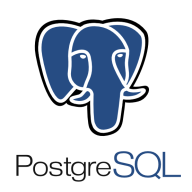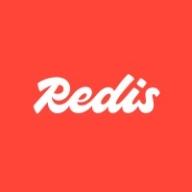

PostgreSQL and Redis compete in the database solutions category. PostgreSQL holds an advantage in terms of robustness and compliance with standards, whereas Redis is preferred for speed and simplicity of data retrieval.
Features: PostgreSQL is known for supporting complex queries, stored procedures, and providing a single unified database server. It excels in scalability for write-intensive tasks and adheres strictly to ACID compliance. Redis is appreciated for its speed and use in caching and real-time analytics, facilitated by its in-memory data structure store and rapid data retrieval capabilities.
Room for Improvement: PostgreSQL's limitations include the lack of multiple back-end storage engines, less efficiency in read-only scenarios, and constraints with queries it supports, such as unsigned integers. Redis requires improvement in high availability in non-commercial versions and lacks an intuitive built-in GUI, which complicates operations for users not familiar with command-line interfaces.
Ease of Deployment and Customer Service: PostgreSQL can be deployed across various environments, including on-premises, hybrid, and cloud setups, with support from a strong open-source community. Redis is typically deployed in public cloud settings, offering a straightforward deployment process and community support. Both lack official customer service, relying on community and third-party support.
Pricing and ROI: Both PostgreSQL and Redis are cost-effective as open-source solutions with no licensing fees. PostgreSQL is especially cost-effective with low setup costs if the team is capable, while Redis may incur higher costs in memory usage. Both ensure a quick ROI, though Redis might lead to higher operational expenses if memory usage isn't optimized.
| Product | Market Share (%) |
|---|---|
| Redis | 5.6% |
| PostgreSQL | 6.4% |
| Other | 88.0% |
| Company Size | Count |
|---|---|
| Small Business | 57 |
| Midsize Enterprise | 26 |
| Large Enterprise | 46 |
| Company Size | Count |
|---|---|
| Small Business | 11 |
| Midsize Enterprise | 3 |
| Large Enterprise | 9 |
PostgreSQL is a versatile and reliable database management system commonly used for web development, data analysis, and building scalable databases.
It offers advanced features like indexing, replication, and transaction management. Users appreciate its flexibility, performance, and ability to handle large amounts of data efficiently. Its robustness, scalability, and support for complex queries make it highly valuable.
Additionally, PostgreSQL's extensibility, flexibility, community support, and frequent updates contribute to its ongoing improvement and stability.
Redis offers high-speed, in-memory storage, renowned for real-time performance. It supports quick data retrieval and is used commonly in applications like analytics and gaming.
Renowned for real-time performance, Redis delivers high-speed in-memory storage, making it a favorite for applications needing quick data retrieval. Its diverse data structures and caching capabilities support a broad array of use cases, including analytics and gaming. Redis ensures robust scalability with master-slave replication and clustering, while its publish/subscribe pattern renders it reliable for event-driven applications. The solution integrates smoothly with existing systems, minimizing performance tuning needs. Although documentation on scalability and security could be improved, Redis remains cost-effective and stable, commonly utilized in cloud environments. Enhancing integration with cloud services like AWS and Google Cloud and refining GUI may improve usability.
What are the key features of Redis?Redis finds application across industries for tasks like caching to improve application performance and speed, minimizing database load. It enables real-time processing for session storage, push notifications, and analytics. As a messaging platform, Redis handles high traffic and supports replication and clustering for cross-platform scalability.
We monitor all Vector Databases reviews to prevent fraudulent reviews and keep review quality high. We do not post reviews by company employees or direct competitors. We validate each review for authenticity via cross-reference with LinkedIn, and personal follow-up with the reviewer when necessary.